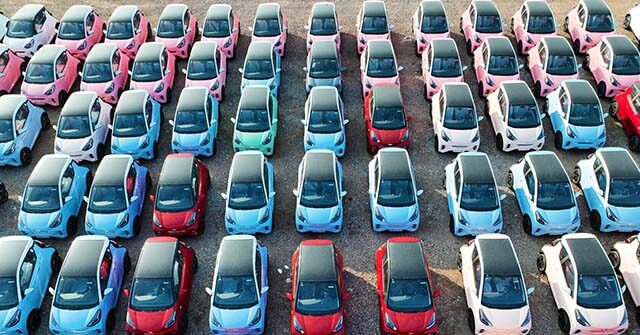The emergence of low-cost Chinese electric vehicles (EVs) in South Africa is indicative of significant shifts in the automotive market, with the country witnessing years of double-digit sales growth for these previously overlooked brands. Once considered undesirable and unreliable, Chinese cars are now gaining traction among consumers, which has led to a notable rise in thefts of these vehicles by car thieves. This resurgence can be attributed to the affordability of brands such as Chery, BAIC, and Haval, which are making strong inroads into a market traditionally dominated by American, Japanese, and German manufacturers. According to Voice of America News (VOA), the competitive pricing of Chinese cars stands out as a primary factor driving their newfound popularity.
Despite being long established in South Africa, many major global car brands have not managed to fend off the rising influence of Chinese manufacturers. Companies like Ford and Toyota have leveraged local manufacturing to secure dominant market positions. However, the Chinese brand BAIC is still grappling with the establishment of its factory in the region, hampered by pandemic-related delays and labor disputes. The CEO of South Africa’s Naamsa auto business council, Mikel Mabasa, described the BAIC facility’s progress as being “still in the setting-up phase,” underscoring the challenges faced by foreign entities trying to gain a foothold in South Africa’s complex automotive landscape.
The market dynamics are shifting as Chinese brands significantly undercut established players like Toyota and Ford, despite the added costs associated with importing vehicles. The Toyota Hilux and Ford Ranger remain top-selling models in South Africa, yet Chery’s Tiggo 4 Pro SUV demonstrated impressive sales with approximately 11,000 units sold within the same period where the Toyota Hilux and Ford Ranger sold significantly more. This competitive pricing strategy employed by Chinese brands positions them favorably amidst an increasingly cost-conscious consumer base in South Africa, especially as the economy faces challenges.
In a gesture to solidify relations with Chinese manufacturers, South African President Cyril Ramaphosa visited the Guangdong headquarters of the electric vehicle giant BYD during an official state visit to China. During this visit, he expressed intent to encourage Chinese EV manufacturers to set up production facilities in South Africa. This move is strategically aligned with the government’s push to bolster the electric vehicle sector within the country, aiming to diversify vehicle options for consumers and foster domestic industry growth, particularly as EV sales have remained sluggish in the local market.
While the broader South African economy battles stagnation and dwindling consumer spending, the resilience of Chinese automobile brands emerges as a crucial factor that could reshape the industry. With reported decreases in new vehicle sales by 5.6 percent last year, Chinese vehicles are increasingly claiming a larger share of the market, seen through the rise in vehicle models available for purchase, now at a notable 27, with entry points as low as $16,000. According to recent data from South African banks, the market share of Chinese brands rose from six percent to 7.4 percent in vehicle financing deals, even amid a backdrop of poor overall auto sales.
In summary, the ascent of Chinese electric and gas-powered vehicles reflects a transformative moment in South Africa’s car market. Cost-effective pricing strategies from brands like Chery and BAIC are resonating with South African consumers, catalyzing changes in market dynamics. The gradual establishment of a local manufacturing presence remains a challenge for these brands, yet government initiatives seeking to attract Chinese manufacturers signify a potential shift towards deeper collaboration. As traditional automotive giants face heightened competition, the evolving landscape suggests an interesting interplay between affordability, market growth, and consumer preferences within the South African automotive sector.

